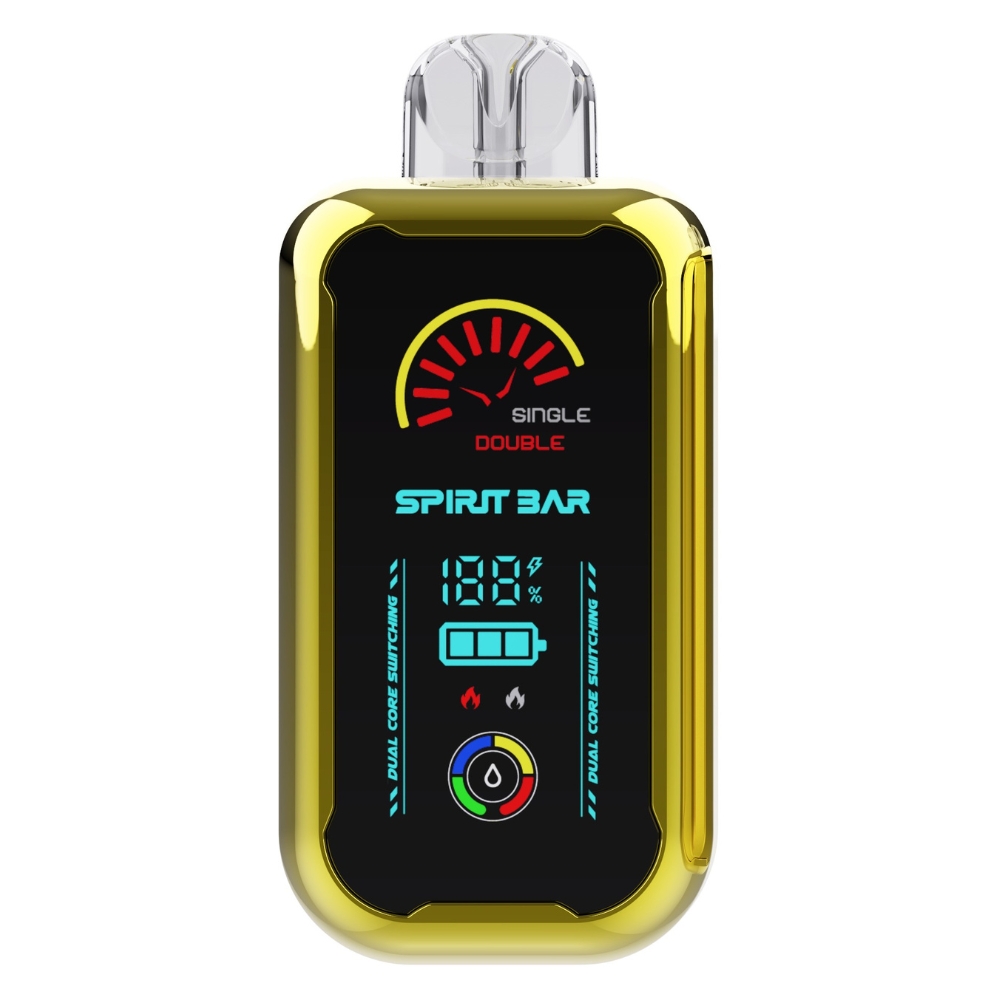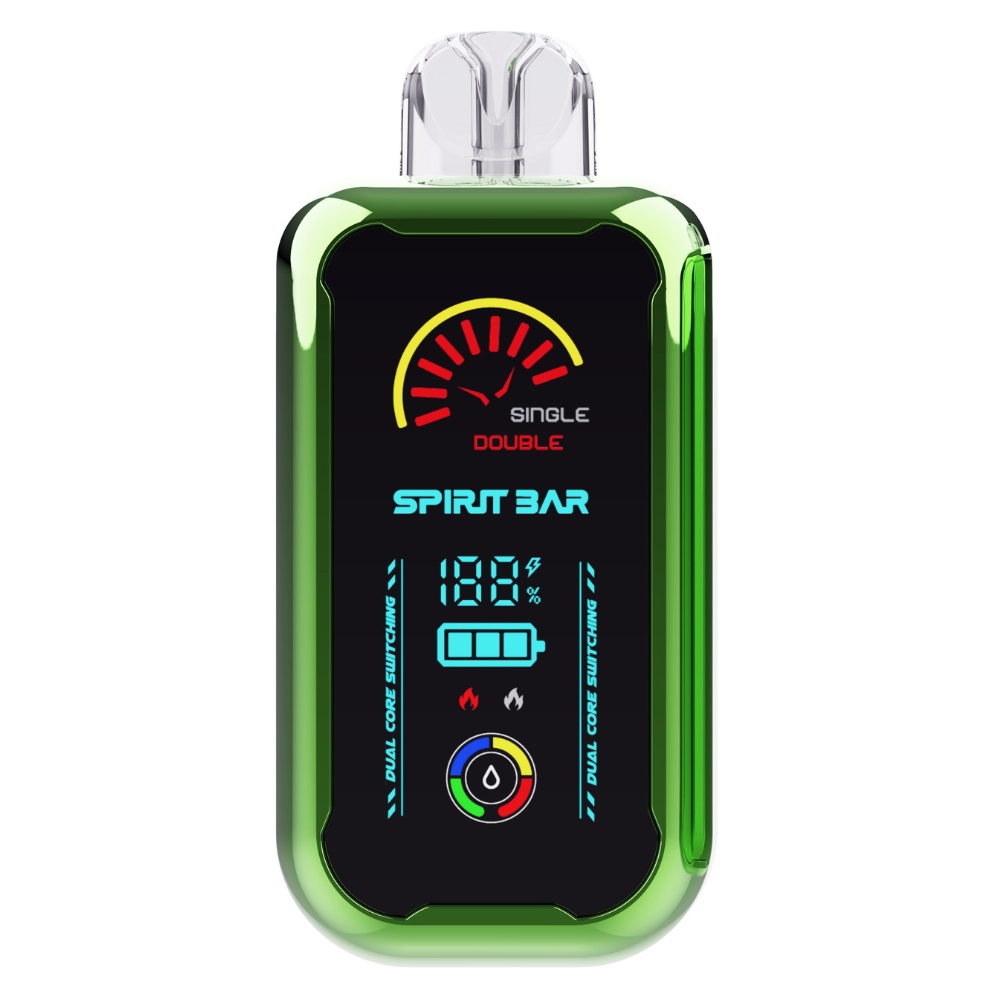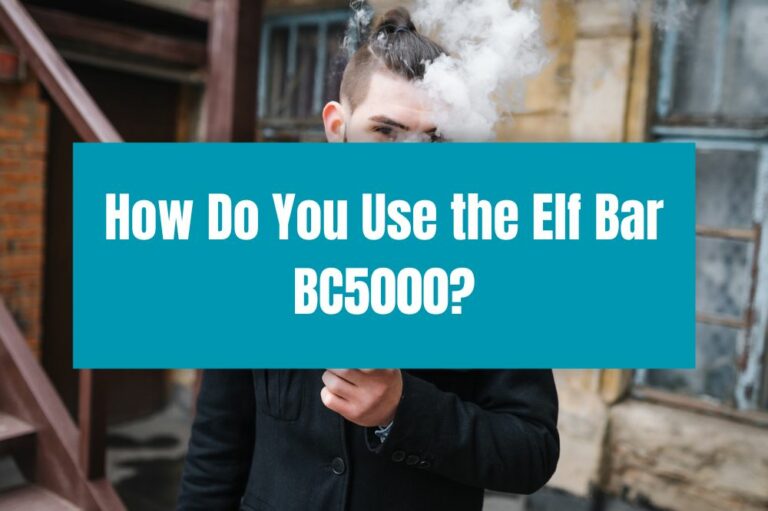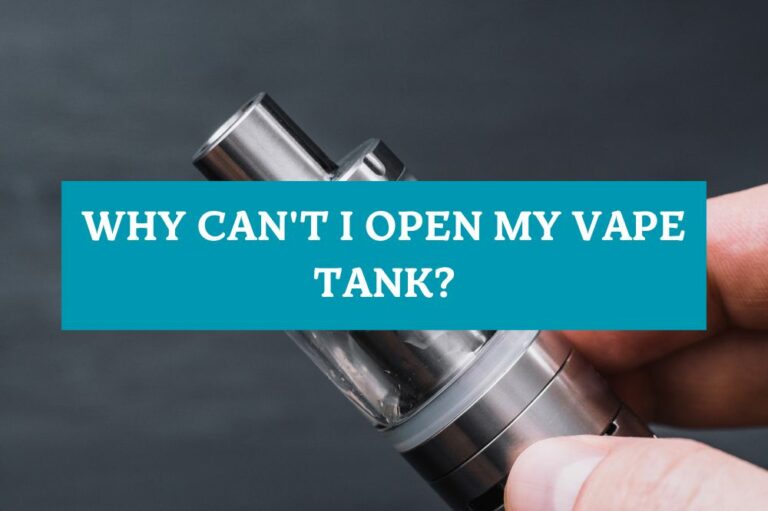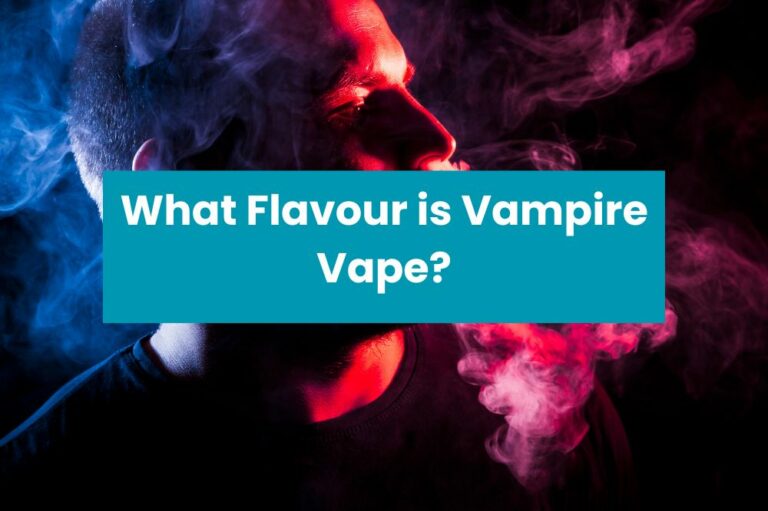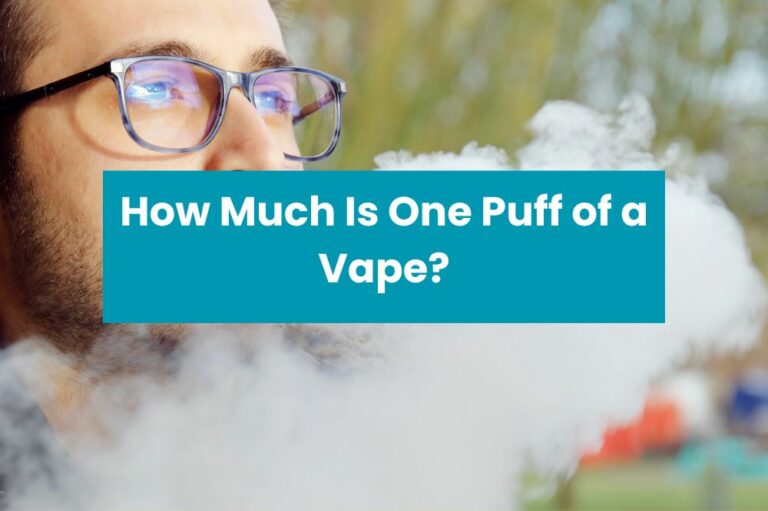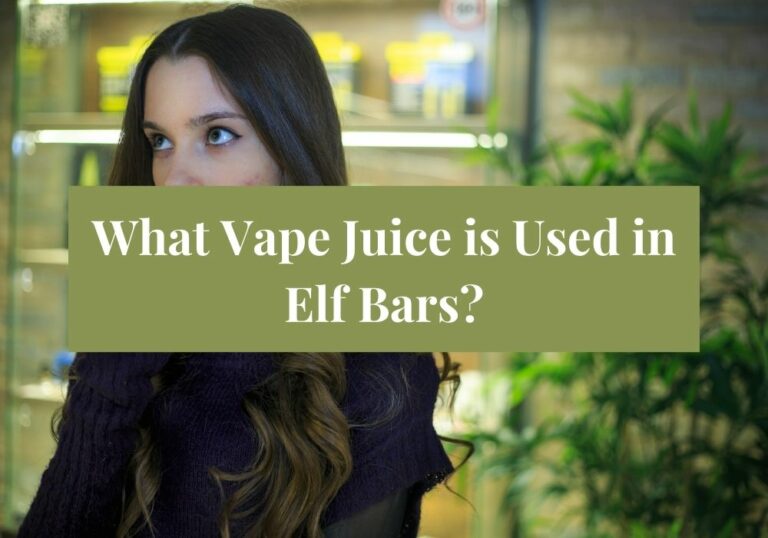How Does Vaping Cause Anxiety?
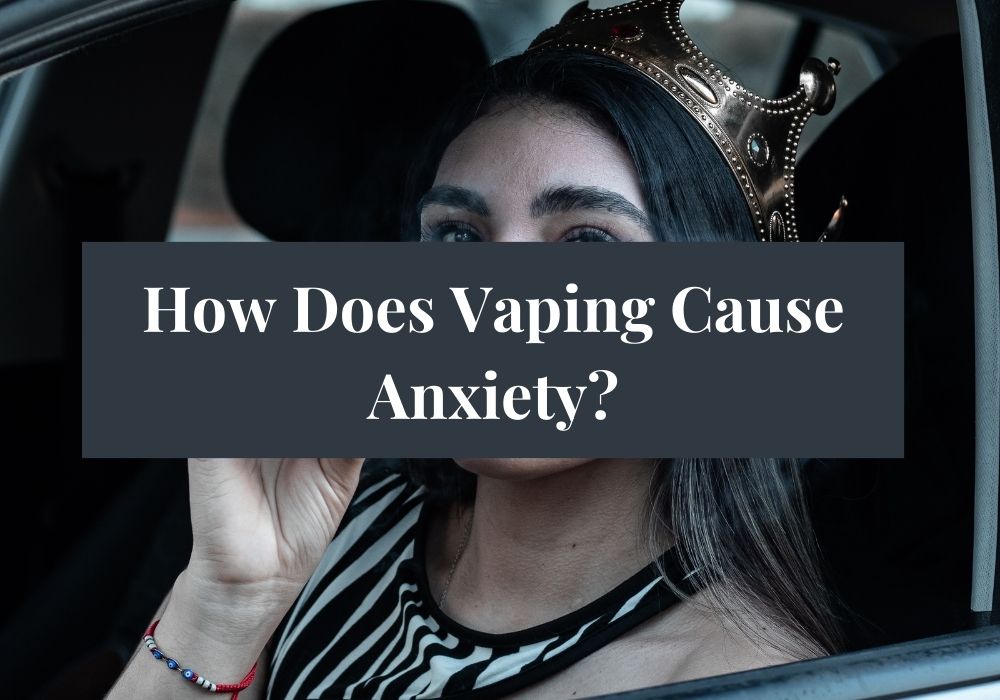
If you’re a vaper, you may have noticed that your anxiety levels have increased since you started vaping. You’re not alone. Studies have shown that vaping can cause or exacerbate anxiety symptoms. Nicotine, the primary ingredient in most vaping products, is known to affect mood and increase feelings of anxiety. In this article, we’ll explore how vaping causes anxiety and what you can do to manage your symptoms.
Nicotine is a powerful stimulant that affects the central nervous system. It increases the release of dopamine, a neurotransmitter that is associated with pleasure and reward. This can create a sense of euphoria and well-being, but it can also cause anxiety and agitation. Nicotine also increases levels of adrenaline, which can lead to a rapid heartbeat, sweating, and other physical symptoms of anxiety.
In addition to nicotine, the act of vaping itself can be a source of anxiety. Many vapers report feeling self-conscious or anxious about vaping in public, especially if they are using a device that produces large clouds of vapor. Others may worry about the long-term health effects of vaping or feel guilty about their addiction to nicotine. All of these factors can contribute to feelings of anxiety and make it difficult to quit vaping.
Understanding Vaping
Vaping has become increasingly popular over the years, but what exactly is it? In this section, we’ll take a closer look at what vaping is and the common ingredients found in vape juice.
What is Vaping?
Vaping is the act of inhaling and exhaling the aerosol, often referred to as vapor, produced by an e-cigarette or similar device. Vaping devices come in various shapes and sizes, but they all work by heating a liquid (usually referred to as vape juice or e-juice) to create an aerosol that is then inhaled.
Common Ingredients in Vape Juice
Vape juice typically contains a combination of the following ingredients:
- Propylene Glycol (PG): PG is a synthetic compound that is used as a food additive, and it is also commonly found in cosmetics and pharmaceuticals. It is used in vape juice to create a smoother hit and to carry flavorings.
- Vegetable Glycerin (VG): VG is a natural compound derived from vegetable oils. It is also used in food, cosmetics, and pharmaceuticals. VG is used in vape juice to create thicker clouds of vapor.
- Flavorings: Vape juice comes in a variety of flavors, including fruit, candy, and dessert flavors. These flavorings are added to the vape juice to make it more enjoyable to use.
- Nicotine: Many vape juices contain nicotine, which is a highly addictive stimulant. Nicotine is added to vape juice to create a similar experience to smoking cigarettes.
It’s important to note that not all vape juices contain nicotine, and there are also nicotine-free options available. Additionally, some vape juices may contain other additives, such as vitamins or caffeine.
Overall, vaping involves inhaling an aerosol produced by heating a liquid. Vape juice typically contains a combination of propylene glycol, vegetable glycerin, flavorings, and nicotine.
Understanding Anxiety
Anxiety is a normal human emotion that everyone experiences from time to time. It is a feeling of worry, nervousness, or unease about something with an uncertain outcome. Anxiety can be a helpful emotion, as it can motivate you to take action and prepare for potential challenges. However, excessive or prolonged anxiety can be debilitating and interfere with daily life.
What is Anxiety?
Anxiety is a mental health disorder that affects millions of people worldwide. It is characterized by persistent and excessive worry or fear about everyday situations. Anxiety can manifest in different ways, including physical symptoms like sweating, trembling, and rapid heartbeat, as well as psychological symptoms like restlessness, irritability, and difficulty concentrating.
Common Triggers of Anxiety
Anxiety can be triggered by a variety of factors, including:
- Stressful life events, such as job loss, divorce, or the death of a loved one
- Chronic medical conditions, such as heart disease or diabetes
- Substance abuse or withdrawal
- Certain medications, such as stimulants or corticosteroids
- Genetics or family history of anxiety disorders
Vaping has also been linked to anxiety, with some studies suggesting a potential link between vaping and increased anxiety symptoms. While research into vaping’s long-term effects is still ongoing, preliminary studies suggest that nicotine, the addictive substance found in most vaping products, can affect the brain’s dopamine pathway, leading to an increase in depressive symptoms. Additionally, the act of vaping itself can be a trigger for anxiety, as it can be a way to cope with stress or anxiety but can also lead to feelings of guilt or shame.
The Connection Between Vaping and Anxiety
If you are a vaper, you may be wondering whether your habit is contributing to your anxiety. Research suggests that there is a link between vaping and anxiety symptoms. Here are some potential ways that vaping could be impacting your mental health.
Nicotine and Anxiety
Nicotine is a highly addictive substance that is found in most e-cigarettes. Dependence on nicotine has been associated with impulsivity, mood disorders, anxiety, suicidality, and depression. The highly addictive nicotine has been studied and reported to affect certain brain regions that poses a risk for long-term damage as well.
Nicotine activates the sympathetic nervous system, which is responsible for the body’s “fight or flight” response. This can lead to increased heart rate, blood pressure, and other physical symptoms of anxiety. Additionally, nicotine can alter the levels of neurotransmitters in the brain, including dopamine and norepinephrine, which are involved in mood regulation.
Social Implications of Vaping
Vaping may also contribute to anxiety in social situations. If you are a vaper, you may feel self-conscious about your habit, particularly if you are around people who do not approve of vaping. This can lead to social anxiety and feelings of isolation.
Moreover, the act of vaping itself may be a coping mechanism for social anxiety. Some people may use vaping as a way to calm their nerves in social situations, which can lead to a dependence on the habit and exacerbate anxiety symptoms.
In conclusion, while there is still much to learn about the link between vaping and anxiety, evidence suggests that vaping may contribute to anxiety symptoms in several ways. If you are struggling with anxiety and are a vaper, it may be worth considering whether your habit is contributing to your symptoms.
Scientific Studies on Vaping and Anxiety
Recent Research Findings
Recent studies have shown that there is a worrisome connection between vaping and chronic stress, anxiety, and depression. According to a study published in SciTechDaily, chronic stress can lead to mental health conditions such as anxiety and depression. The study found that young people experiencing chronic stress are more likely to resort to unhealthy coping mechanisms like vaping or smoking.
Another study conducted by the American Heart Association found that vaping nicotine and THC, the psychoactive component in marijuana, was associated with self-reported symptoms of depression and anxiety. The study surveyed more than 2,500 teens and young adults, and the results showed that vaping nicotine and THC was linked to depression and anxiety symptoms.
Limitations of Current Research
While recent studies have shown a correlation between vaping and anxiety, it is important to note that the research is still in its early stages, and there are limitations to the current research. For example, many of the studies are based on self-reported symptoms, which may not be entirely accurate. Additionally, there is a lack of long-term studies on the effects of vaping on mental health.
Furthermore, the studies have not yet been able to determine whether vaping causes anxiety or whether people who are already prone to anxiety are more likely to start vaping. It is also unclear whether the nicotine or other chemicals in e-cigarettes are responsible for the anxiety symptoms.
In conclusion, while the recent studies have shown a connection between vaping and anxiety, it is important to remember that the research is still in its early stages. More research is needed to determine the long-term effects of vaping on mental health and to better understand the relationship between vaping and anxiety.
Managing Anxiety from Vaping
If you’re experiencing anxiety from vaping, there are various ways to manage it. Here are some ways to help you cope:
Quitting Vaping
The most effective way to manage anxiety caused by vaping is to quit vaping altogether. Nicotine is a stimulant that can increase anxiety levels, and vaping can make it harder to quit due to its convenience and accessibility.
Quitting vaping can be challenging, but there are many resources available to help you. Consider using nicotine replacement therapy, such as nicotine gum or patches, to help you manage cravings. You can also try gradually reducing your nicotine intake over time until you no longer feel the need to vape.
Seeking Professional Help
If you’re struggling with anxiety caused by vaping, it’s important to seek professional help. A mental health professional can help you develop coping strategies to manage your anxiety and provide support as you work to quit vaping.
Cognitive-behavioral therapy (CBT) is a type of therapy that can be particularly helpful for managing anxiety. CBT focuses on identifying and changing negative thought patterns and behaviors that contribute to anxiety.
In addition to therapy, medication may also be an option for managing anxiety. Your healthcare provider can help you determine if medication is right for you.
Remember, managing anxiety from vaping is a process that takes time and effort. Be patient with yourself and don’t hesitate to reach out for help when you need it.

